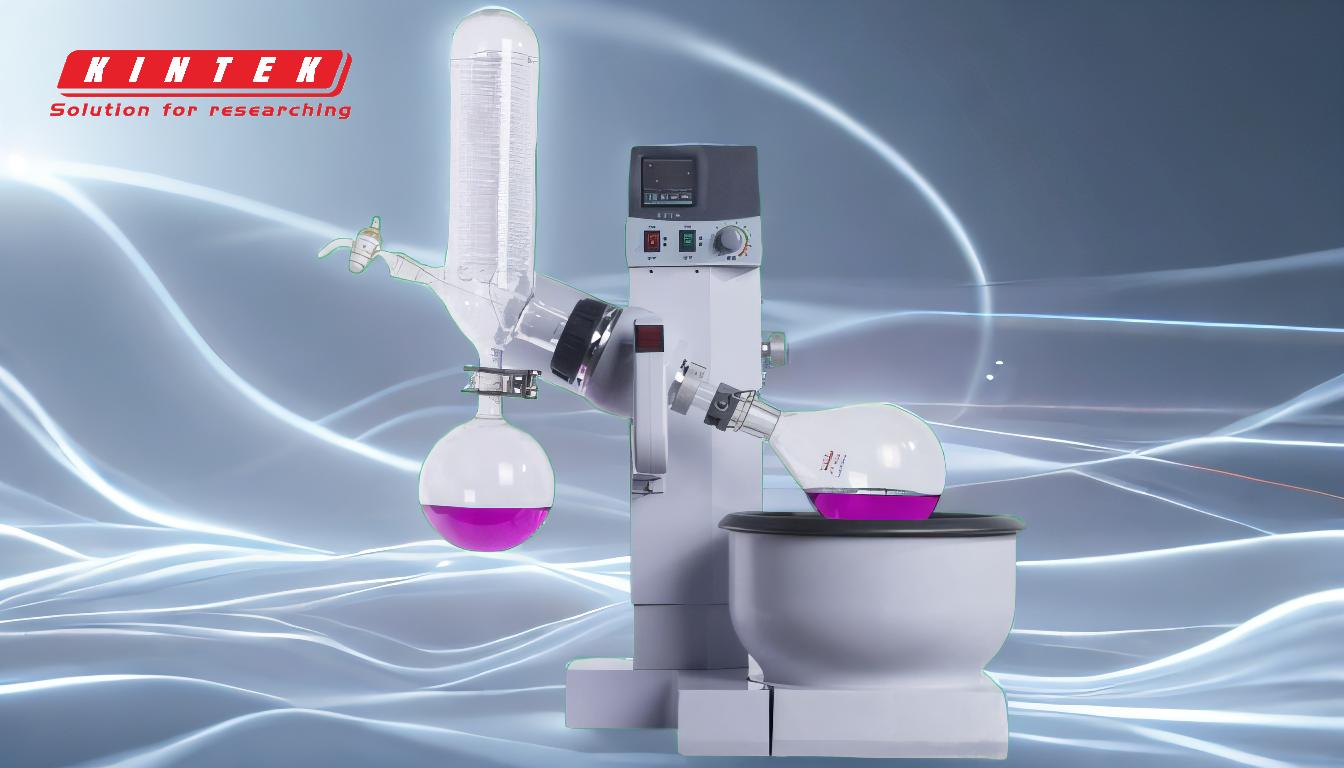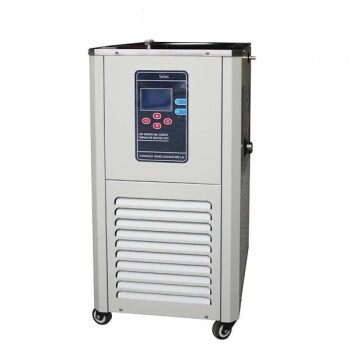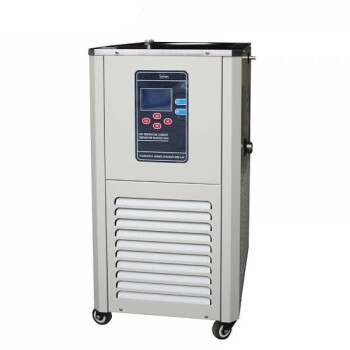A chiller is highly recommended for use with a rotary evaporator due to its ability to provide precise and stable cooling, which is essential for efficient and consistent evaporation processes. While tap water can be used as a cooling medium, it lacks the temperature stability and accuracy required for sensitive laboratory applications. A chiller ensures proper vaporization by removing heat from the system, preventing sample degradation, and offering greater control over the condensation process. Additionally, chillers are more environmentally friendly, cost-effective in the long run, and reduce the risk of laboratory floods compared to tap water or dry ice cooling methods.
Key Points Explained:

-
Importance of Cooling in Rotary Evaporation:
- During evaporation, solvents become warm, and cooling is necessary to ensure proper vaporization and condensation.
- A chiller provides precise and stable cooling, which is critical for maintaining the integrity of sensitive samples and achieving consistent results.
-
Advantages of Using a Chiller Over Tap Water:
- Temperature Accuracy and Stability: Chillers offer better control over cooling temperatures, ensuring consistent condenser performance, which is vital for sensitive lab samples.
- Environmental and Cost Efficiency: Chillers save water, reduce environmental impact, and are more cost-effective over time compared to continuously running tap water.
- Convenience and Safety: Using a chiller eliminates the need for frequent monitoring and reduces the risk of laboratory floods caused by overflowing tap water systems.
-
How Chillers Work with Rotary Evaporators:
- Chillers pump a cool fluid (typically water or a water/glycol mixture) to the condenser of the rotary evaporator to remove heat.
- The warm fluid returns to the chiller, where it is cooled and recirculated, ensuring a continuous and efficient cooling process.
-
Benefits of Recirculating Chillers:
- Consistent Condenser Temperature: Recirculating chillers maintain a stable temperature, eliminating seasonal fluctuations that can affect evaporation efficiency.
- Reduced Labor and Environmental Impact: Chillers are less labor-intensive than dry ice or tap water systems and are more environmentally friendly.
- Improved Process Control: Chillers provide greater control over the condensation process, ensuring smooth and reliable operation during purification, concentration, or drying of samples.
-
Applications and Long-Term Benefits:
- Chillers are essential for processes like purification, crystallization, and solvent recovery, where precise temperature control is necessary.
- Over time, chillers prove to be a cost-efficient investment due to their durability, reduced water usage, and lower operational costs compared to alternative cooling methods.
In summary, while a chiller is not strictly mandatory for a rotary evaporator, it is highly recommended for laboratories seeking precise temperature control, environmental sustainability, and long-term cost savings. It ensures efficient and reliable operation, making it a valuable addition to any rotary evaporation setup.
Summary Table:
| Key Benefits of Using a Chiller | Details |
|---|---|
| Temperature Accuracy & Stability | Ensures consistent cooling for sensitive lab samples. |
| Environmental & Cost Efficiency | Reduces water usage and operational costs over time. |
| Convenience & Safety | Eliminates flood risks and minimizes lab monitoring. |
| Improved Process Control | Provides reliable condensation for purification and drying. |
| Long-Term Investment | Durable, cost-effective, and eco-friendly solution. |
Upgrade your rotary evaporation setup with a chiller—contact us today to learn more!









